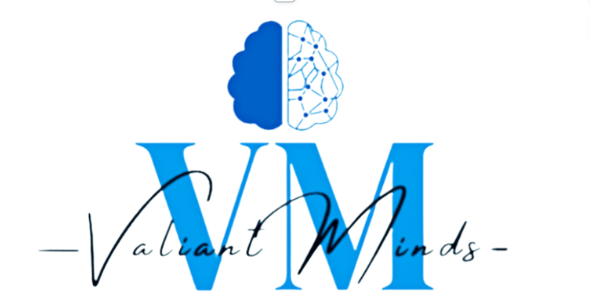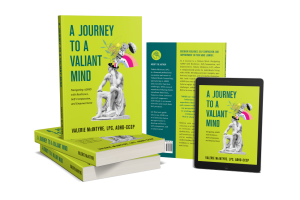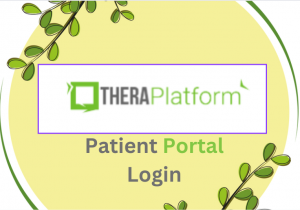As a therapist, I have always been passionate about helping others, but it wasn’t until I was diagnosed with Attention Deficit Hyperactivity Disorder (ADHD) that I truly understood the struggles that my clients face.
Growing up, I had always struggled with symptoms of ADHD such as impulsivity, difficulty in focusing, and restlessness. But I had never been diagnosed, and I had always just assumed that my struggles were due to a lack of discipline or motivation.
It wasn’t until I reached my 30s that I finally decided to seek help. I went to see a therapist, and after a series of evaluations and assessments, I was finally diagnosed with ADHD.
The diagnosis was a relief for me. It helped me to understand why I had struggled for so long and gave me a sense of validation for my experiences. With the help of therapy, medication, and organizational tools, I was able to start managing my symptoms and improving my quality of life.
But more importantly, my diagnosis has given me a deeper understanding and empathy for my clients. I understand the struggles that they are facing and can provide them with strategies and tools to manage their symptoms. I also know that it’s possible to live a fulfilling and successful life with ADHD.
I am now determined to use my personal experience to help others who are going through similar experiences. I have specialized in helping adults and children with ADHD to manage their symptoms and improve their quality of life.
I have seen firsthand the power of a proper diagnosis and the right support and strategies. Most importantly, I want you to know that I understand.
I understand that living with ADHD can be challenging and that it can affect many aspects of your life. My hope for you is that through therapy, we can work together to better understand your symptoms and develop strategies to manage them.
I know that ADHD can make it difficult to focus, stay organized, and follow through on commitments. We will work together to develop strategies for staying on task and improving time management. We will also work on impulse control and emotional regulation to help you navigate through daily challenges.
I also understand that ADHD can affect one’s self-esteem and self-worth. We will work on building your self-esteem, and I will be here to support you in your journey. I will provide you with a safe and non-judgmental space to talk about your feelings and experiences.
I also understand that ADHD can affect relationships and I am here to help you navigate through those challenges. We will work on communication skills, and ways to improve your relationships.
I understand that every person with ADHD is unique and that the journey is different for everyone. Together we will develop a personalized treatment plan that works best for you. My ultimate goal is to help you to improve your quality of life and to live a fulfilling life. Here are just a few examples of some of the challenges a person with ADHD goes through and how we worked on navigating through those challenges.
Jane, a 35-year-old woman:
Jane has been living with Attention Deficit Hyperactivity Disorder (ADHD) since childhood. Despite receiving treatment and support, Jane struggles to manage her symptoms on a daily basis.
Jane’s day starts like any other, with the ringing of her alarm clock. But unlike most people, she finds it hard to get out of bed and start her day. Her mind is scattered and she can’t seem to focus on the task of getting ready. She gets dressed, but it takes her twice as long as it would for most people because she can’t seem to keep her mind on what she’s doing.
Once she’s finally out the door, she faces her next challenge – getting to work. Jane’s impulsivity and difficulty in focusing make it hard for her to drive safely and stay on task. She often gets lost and arrives late to work, which can lead to negative consequences and regrets.
At work, Jane struggles to stay on task and complete her assignments on time. She finds it hard to focus and is easily distracted by her co-workers, her phone, or even her own thoughts. Her boss and colleagues often perceive her as disorganized and unreliable.
After work, Jane tries to unwind, but her restlessness and impulsivity make it hard for her to relax. She finds it hard to sit still and watch a movie, and often ends up pacing or fidgeting instead.
Finally, it’s time for bed, but Jane can’t seem to shut off her mind. She finds it hard to fall asleep and often lies awake for hours, her mind racing with thoughts and regrets about the day.
This is a typical day in the life of someone living with ADHD, a day filled with struggles and challenges. However, with the right support and strategies, such as therapy, medication, and organizational tools, it is possible for people like Jane to manage their symptoms and improve their quality of life. It’s important to remember that people with ADHD are not lazy or unmotivated, but instead, they are dealing with a real neurological condition that affects their daily lives.
John, a 25-year-old man:
John has always found social interactions to be a significant challenge. John’s ADHD symptoms, such as impulsivity and difficulty in focusing, make it hard for him to maintain friendships. He finds it hard to follow conversations, and often interrupts or talks over others. As a result, he is often perceived as rude or disinterested.
John also struggles with impulse control, which makes him prone to acting on his impulses without thinking about the consequences. For example, he may impulsively agree to social plans without considering his work schedule or other commitments. He often ends up canceling plans last minute, which leads to disappointment and frustration from his friends.
Additionally, John’s ADHD symptoms make it challenging for him to pick up on social cues and emotions, which can cause him to miss important information in social interactions. He often appears insensitive or unaware of the feelings of others, which creates tension and awkwardness in relationships.
John’s struggles with social interactions have led to feelings of low self-esteem, and he often avoids social situations, which is leading to increased isolation and loneliness. He is becoming more and more isolated and has few friends, which is causing him a lot of emotional pain.
It is important to note that John’s situation is not unique, and many individuals with ADHD face similar challenges in their social lives. However, with the right support and strategies, such as therapy, medication, and organizational tools, it is possible for John, and others like him, to manage their symptoms and improve their social interactions.
Sophie, a 22-year-old woman:
Emotionally, ADHD can also take a toll, with individuals experiencing feelings of frustration, low self-esteem, and even depression as a result of their symptoms. Sophie struggles to manage her symptoms, which has a significant impact on her emotional well-being.
Sophie’s ADHD symptoms, such as impulsivity, difficulty in focusing, and restlessness, make it hard for her to complete tasks and stay organized. As a result, she often feels overwhelmed and stressed, which leads to feelings of anxiety and frustration.
Sophie’s impulsivity also leads to her making impulsive decisions and acting without thinking, which can lead to negative consequences and regrets. These regrets and negative consequences can lead to feelings of guilt and shame, which can negatively affect her self-esteem.
Additionally, Sophie’s ADHD symptoms make it challenging for her to stay on task, which can lead to missed deadlines and poor performance at work. This can lead to feelings of inadequacy and low self-worth.
Sophie’s struggles with her symptoms have also led to feelings of isolation and loneliness. Her impulsivity and difficulty in maintaining relationships, and her tendency to avoid social situations, can lead to a lack of social support, which can exacerbate her emotional struggles.
Markell a 35-year-old non binary individual
Markell struggles to manage their symptoms, which has a significant impact on their financial stability.
Markell’s ADHD symptoms, such as impulsivity, difficulty in focusing, and restlessness, make it hard for them to stay organized and complete tasks on time. As a result, they often miss deadlines and have poor performance at work, which can negatively affect their career progression and earning potential.
Markell’s impulsivity also leads them to make impulsive financial decisions, such as making large purchases without thinking about the long-term consequences of overspending on unnecessary items. This can lead to financial problems such as high debt or difficulty in saving money.
Additionally, Markell’s ADHD symptoms make it challenging for them to plan and budget, which can lead to financial instability. They often struggle to pay bills on time, which can lead to late fees or penalties.
Michael, 30, and Sarah, 28:
Michael is in a loving and committed relationship with his partner, Sarah. However, despite their love for each other, Michael’s ADHD symptoms often cause strain and stress in their relationship.
Michael’s impulsivity and difficulty in focusing make it hard for him to communicate effectively with Sarah. He often interrupts her or talks over her, which can make her feel unheard and unimportant. Additionally, Michael’s impulsivity can lead him to make impulsive decisions, such as agreeing to plans or activities without considering Sarah’s feelings or schedule.
Sarah often feels frustrated and upset with Michael’s inability to keep the house clean and tidy. Michael’s disorganization and lack of follow through makes it hard for him to keep up with household chores, which can lead to tension and arguments between the couple.
Michael’s restlessness and fidgeting can also make it hard for him to sit still and have a conversation with Sarah. He often finds himself getting up and pacing during conversations, which can make Sarah feel like he’s not truly listening or engaged with her.
Sarah’s feelings of frustration and disappointment often lead to feelings of guilt and shame in Michael. He knows that he loves Sarah and wants to make things work, but his ADHD symptoms make it hard for him to follow through on his commitments and make her happy.
This is a typical scenario in a relationship where one of the partners has ADHD, a scenario filled with struggles and challenges. However, with the right support, understanding, and strategies, such as therapy, medication, and organizational tools, it is possible for couples like Michael and Sarah to navigate through these challenges and improve their relationship. It’s important to remember that ADHD is a real condition and not a choice, and with the proper understanding and support, people with ADHD can have healthy and fulfilling relationships.
Tom, 40, and Lisa, 36:
Tom is a loving husband and father, but his ADHD symptoms often make it difficult for him to manage his household responsibilities.
Tom’s impulsivity and difficulty in focusing make it hard for him to keep up with household chores. He often forgets to do simple tasks such as taking out the trash or doing the dishes, which can lead to a cluttered and disorganized home. His wife, Lisa, often finds herself picking up after him, which can lead to feelings of resentment and frustration.
Tom’s disorganization also makes it hard for him to keep track of important household documents such as bills and appointments. He often forgets to pay bills on time, which can lead to late fees and penalties. His wife Lisa has to constantly remind him and follow through with the bills and appointments, which can be overwhelming for her.
Tom’s restlessness and fidgeting make it hard for him to sit still and focus on a task for an extended period. He often finds himself getting up and pacing during household tasks, which can make it hard for him to finish what he’s started.
His wife Lisa often feels overwhelmed and stressed by the additional responsibilities she has to take on, due to Tom’s inability to manage the household. She finds it hard to rely on him and feels like she is shouldering the majority of the household responsibilities.
This is a typical scenario in a household where one of the partners has ADHD, a scenario filled with struggles and challenges. However, with the right support, understanding, and strategies, such as therapy, medication, and organizational tools, it is possible for couples like Tom and Lisa to navigate through these challenges and improve their household management. It’s important to remember that ADHD is a real condition and not a choice, and with the proper understanding and support, people with ADHD can lead successful and fulfilling lives.
Alan and Dave, a young couple in their late 20s:
Both Alan and Dave have been living with Attention Deficit Hyperactivity Disorder (ADHD) since childhood. They met at a support group for adults with ADHD and immediately connected over their shared experiences.
Despite their love for each other, managing their relationship with ADHD can be a challenge. Alan’s impulsivity and difficulty in focusing make it hard for him to communicate effectively with Dave. He often interrupts him or talks over him, which can make him feel unheard and unimportant. Additionally, Alan’s impulsivity can lead him to make impulsive decisions, such as agreeing to plans or activities without considering Dave’s feelings or schedule.
Dave’s disorganization and lack of follow through make it hard for him to keep up with household chores, which can lead to a cluttered and disorganized home. Alan often finds himself picking up after him, which can lead to feelings of resentment and frustration.
Both Alan and Dave struggle with restlessness and fidgeting, which makes it hard for them to sit still and have a conversation. They often find themselves getting up and pacing during conversations, which can make it hard for them to truly listen and engage with each other.
Their struggles with ADHD also make it hard for them to keep track of important dates, appointments and bills, which can lead to missed deadlines and financial problems.
Despite these challenges, Alan and Dave have found ways to support and understand each other. They have developed strategies such as therapy, medication, and organizational tools that help them to manage their symptoms and improve their relationship. They also make sure to have regular open and honest communication about their feelings and struggles. They understand that ADHD is a real condition and not a choice, and with the proper understanding and support, they can have a successful and fulfilling relationship.
It is important to remember that ADHD is a real condition and not a choice. With the right support, people with ADHD can lead fulfilling, successful lives. If you or someone you know is struggling with ADHD, reach out for help. There are many resources available, including healthcare professionals and support groups, that can provide guidance and support. Valiant Minds Counseling is dedicated to providing comprehensive and compassionate care to individuals living with Attention Deficit Hyperactivity Disorder (ADHD). Our mission is to empower our clients to better understand and manage their symptoms, improve their quality of life and reach their full potential.






